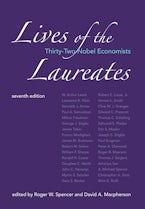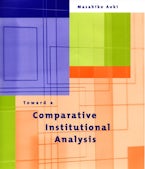Grossman and Helpman have produced an elegant theoretical foundation for understanding the interactions between groups and politicians in the political economy of a liberal democracy. It should be of 'special interest' to political scientists and economists alike.
Kenneth A. Shepsle, George D. Markham Professor of Government, Harvard University
In this pioneering work, Grossman and Helpman use tools of economic theory to provide new insights into lobbying and special-interest-group-politics. The work is innovative and comprehensive, shedding light on a wide range of questions in a unified treatment. It is a must for anyone interested in special interest groups.
Allen Drazen, The Eitan Berglas School of Economics, Tel Aviv University
The authors succeed brilliantly in producing a self-contained monograph that lays out a coherent theoretical framework that allows them to tackle a large number of important substantive issues. What I find most impressive is that the book is very focused and yet covers a lot of ground.
Antonio Merlo, Department of Economics, University of Pennsylvania
An excellent theoretical book on special interest politics. Special Interest Politics would be a good book for scholars as well as for students in introductory graduate courses in political economy that deal with the influence of money and interest groups on political outcomes.
Thomas Stratmann, Professor of Economics, Center for Study of Public Choice, George Mason University
The authors bring a sophisticated game theory perspective to special interest groups in modern democracies. The book is smart, thorough, and well organized around questions of voting, lobbying, and campaign contributions. It brings a fresh viewpoint to a continuing topic in modern political life.
Darrell M. West, Taubman Center for Public Policy, Brown University
Special Interest Politics is a major work in which economic analysis confronts politics. Grossman and Helpman synthesize and extend the body of political-economic work on interest groups, lobbying, and government with remarkable consistency and clarity. Chapter after chapter, their analyses and insights will put researchers into the fast lane en route to continued advances in this crucial area.
Keith Krehbiel, Edward B. Rust Professor of Political Science, Graduate School of Business, Stanford University
Grossman and Helpman have produced a book that is both substantively important and theoretically accessible. The theoretical aspirations of this book are breathtaking: the goal is to make a contribution to democratic theory, based on technically rigorous models. Special Interest Politics is the most important book on interest groups in at least a decade.
Michael Munger, Professor and Chairman, Department of Political Science, Duke University












